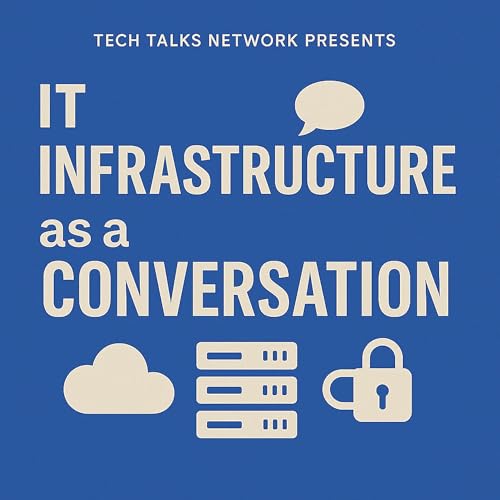When does automating tasks stop being enough, and when does infrastructure itself need to become a shared conversation across teams?
In this episode of IT Infrastructure as a Conversation, I’m joined by Peter Sprygada, Chief Architect at Itential, for a deep and refreshingly pragmatic discussion about how infrastructure operations have evolved from scripts and isolated automation into something far more complex and interconnected. Peter has spent more than a decade working across enterprise networks, cloud platforms, and automation tooling, and that experience shows in how he talks about what has genuinely changed, and what has not.
We trace the journey from early network automation, born out of engineers trying to escape repetitive CLI work, to the point where automation alone starts to break down. Peter explains why automation excels in domains but struggles across end-to-end systems, and why orchestration becomes essential once infrastructure has to align with real business intent. Instead of teams pointing fingers when something fails, orchestration creates a common language that allows network, cloud, application, and platform teams to work toward the same outcome, even when they use different tools and terminology.
We also tackle AI head-on, separating operational reality from conference stage promises. Peter shares his own initial skepticism, why treating AI as a tool rather than a silver bullet matters, and how the same lessons learned from automation apply again today. We talk about governance, guardrails, and what Peter calls the boring stuff, the logging, security, and controls that actually make innovation sustainable at scale. As infrastructure complexity continues to rise, he argues that many leaders still underestimate just how much engineering effort is required to keep modern platforms reliable.
Looking ahead, Peter outlines how the traditional boundaries between orchestration, automation, and observability are already starting to blur, and why investing in platforms that can evolve matters more than chasing the latest shiny technology. This conversation stays grounded in real operational challenges, real tradeoffs, and real lessons learned in the field, not abstract futures. As infrastructure stacks continue to grow more complex and AI becomes part of daily operations, are IT leaders ready to treat infrastructure less like a collection of tools and more like an ongoing conversation that never really stops?
Useful Links
- Connect with Peter Sprygada
- Learn more about Itential,
Thanks to our sponsors, Alcor, for supporting the show.
 28 m
28 m 21 m
21 m 28 m
28 m 22 m
22 m 31 m
31 m 24 m
24 m 31 m
31 m 18 m
18 m
